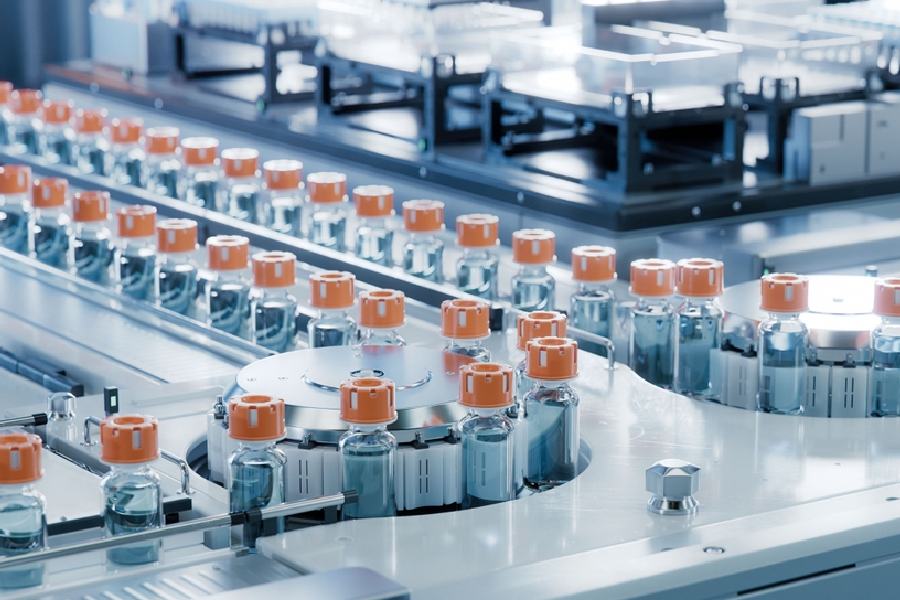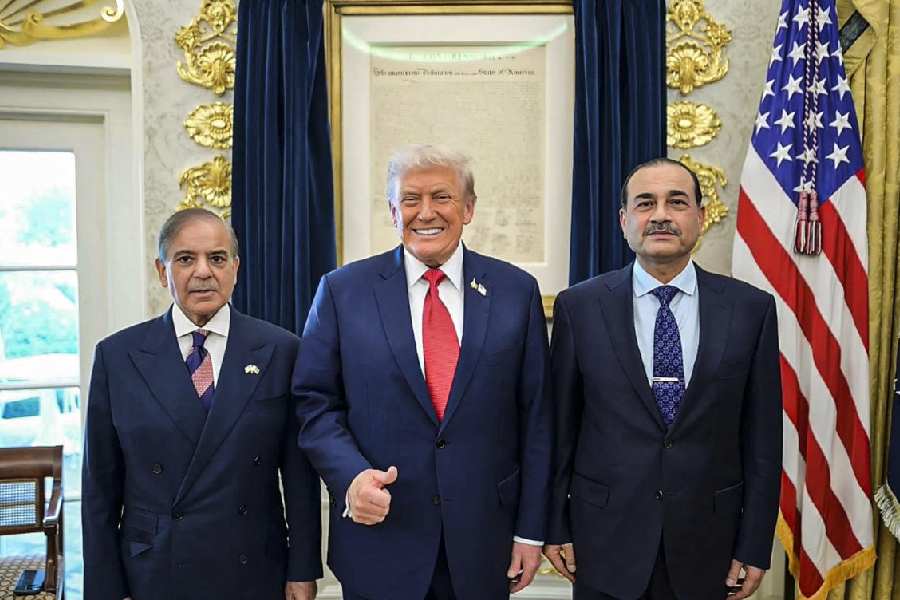Indian pharma stocks slumped on Friday after US President Donald Trump announced a 100 per cent tariff on branded drug imports, but industry bodies downplayed the impact, stressing India’s generic exports — which make up nearly half of US supply — remain outside the levy.
The BSE Healthcare index dropped 2.14 per cent to 43,046.69, with heavy losses in frontline companies. Wockhardt tumbled 9.4 per cent, Indoco Remedies fell 5.35 per cent, Zydus Lifesciences 4.21 per cent, Glenmark Pharma 2.99 per cent and Sun Pharma 2.55 per cent. Lupin shed 2.07 per cent, Dr Reddy’s 1.73 per cent and Aurobindo Pharma 0.57 per cent.
The Sensex sank 733 points, or 0.9 per cent, to 80,426.46, while the Nifty slipped 236 points, or 0.95 per cent, to 24,654.70.
Trump, in a post on Truth Social, said the tariffs will apply to all branded and patented drugs unless companies are already building factories in the United States. “Starting October 1st, 2025, we will be imposing a 100 per cent tariff on any branded or patented pharmaceutical product, unless a company is building their pharmaceutical manufacturing plant in America,” he wrote. “There will be no tariff if construction has started.”
While the announcement rattled investors, Indian pharmaceutical bodies downplayed the impact.
The Indian Pharmaceutical Alliance (IPA), which represents 23 leading drugmakers including Sun Pharma, Dr Reddy’s, Lupin and Zydus Lifesciences, said the measure does not cover generics, the mainstay of India’s exports to the US.
“It is not applicable to generic medicines,” IPA secretary general Sudarshan Jain said.
Pharmexcil, the government-backed export promotion council, noted India supplies nearly 47 per cent of America’s pharmaceutical requirements, largely through affordable generics.
Chairman Namit Joshi said the tariffs are “unlikely to have an immediate impact on Indian exports”, pointing out that most large domestic companies already operate US manufacturing or repackaging units.
Analysts cautioned that risks remain if Washington turns its attention to generic imports in future. Dr V.K. Vijayakumar of Geojit Investments said India is insulated for now, “but perhaps the president’s next target can be generic drugs”.
Others stressed the difficulty of replacing India’s role in the supply chain.
“Any move of this scale cannot be implemented overnight, especially since Indian pharma companies operate plants that follow global good manufacturing practices and are already US FDA-approved,” said Kranthi Bathini of WealthMills. “Replacing this supply chain will be a major challenge.”
Emcure Pharmaceuticals, which has limited exposure to the US market, also said the tariffs will have no effect on its operations.
Industry leaders said the longer-term focus must be on consolidating India’s edge in cost-efficient bulk drugs and active pharmaceutical ingredients, while investing in complex generics, biosimilars and advanced therapies such as CAR-T.
“Generics will remain relevant but will gradually mature; optimising costs and capabilities in emerging categories will shape the next phase of growth,” said Joshi.
For now, markets remain wary. Investors fear Trump’s move could mark the beginning of a tougher stance on pharmaceutical imports.











